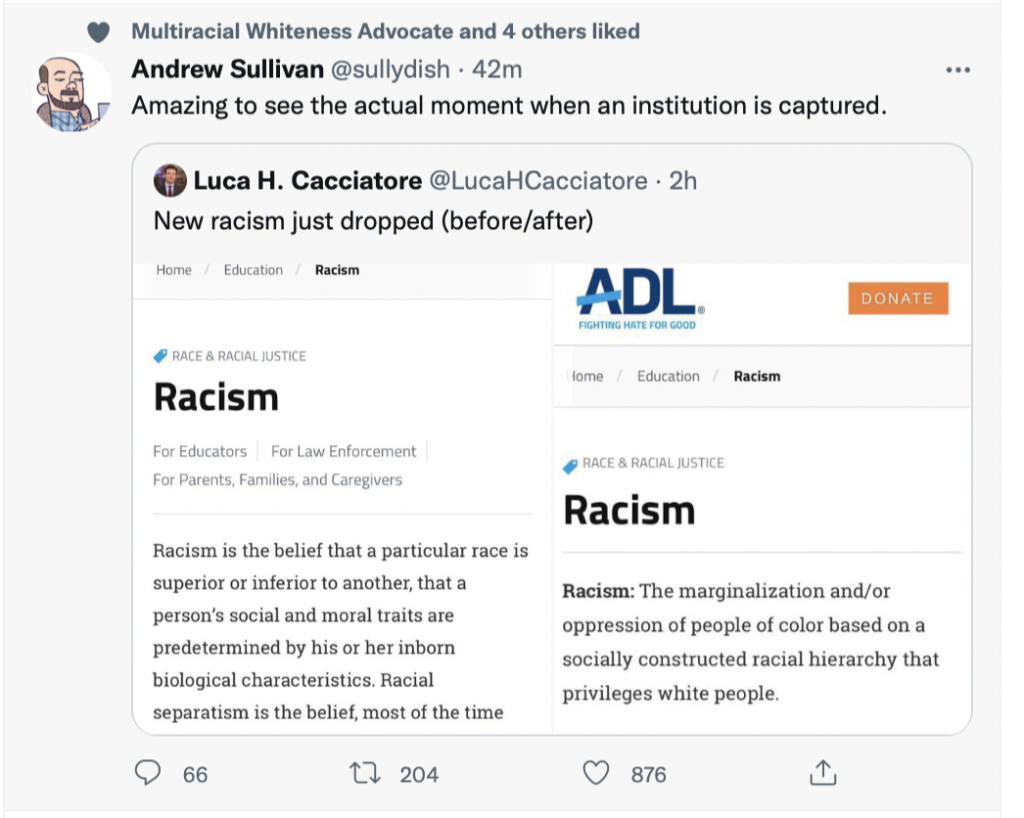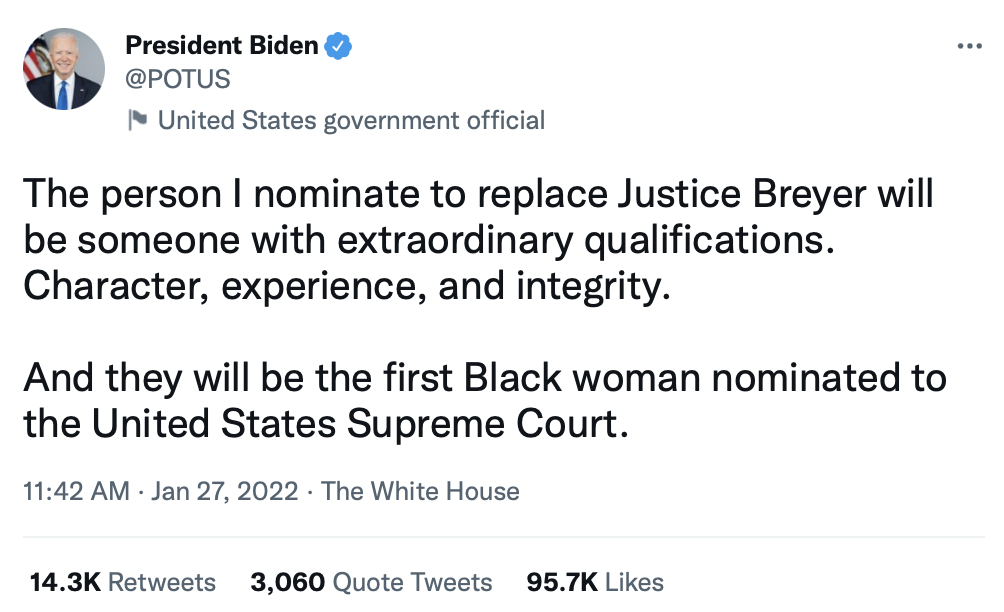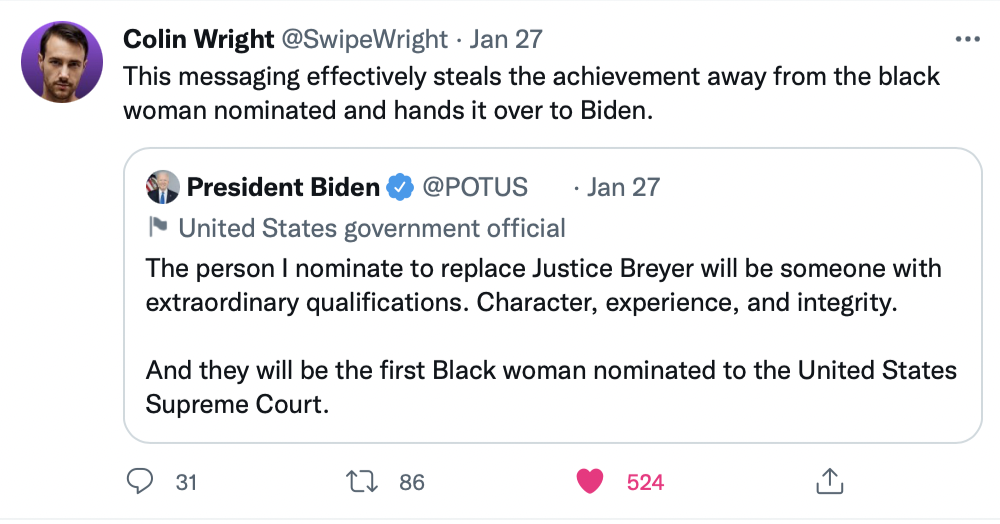There is no evidence that Joe Rogan has ever used the N-Word as a racial slur. He has discussed the word and joked about the word, but there is no evidence he has ever used the word as a racial epithet.
CNN hires writers who refuse to acknowledge the use/mention distinction. It's a very bad thing to use the N-Word as a racial slur. There are valid and admirable reasons for mentioning the full N-Word. For instance, professors should be admired for mentioning the N-Word when teaching the brutal and despicable history of American slavery. Or when discussing language or culture. CNN must certainly understand this distinction between using a word and mentioning it, but acknowledging this very basic thing doesn't fit CNN's mission: dismantling Joe Rogan's big audience by pandering to CNN's increasingly woke but numerically dwindling audience. Many have suggested that CNN is doing this out of jealousy, given CNN's paltry audience numbers.
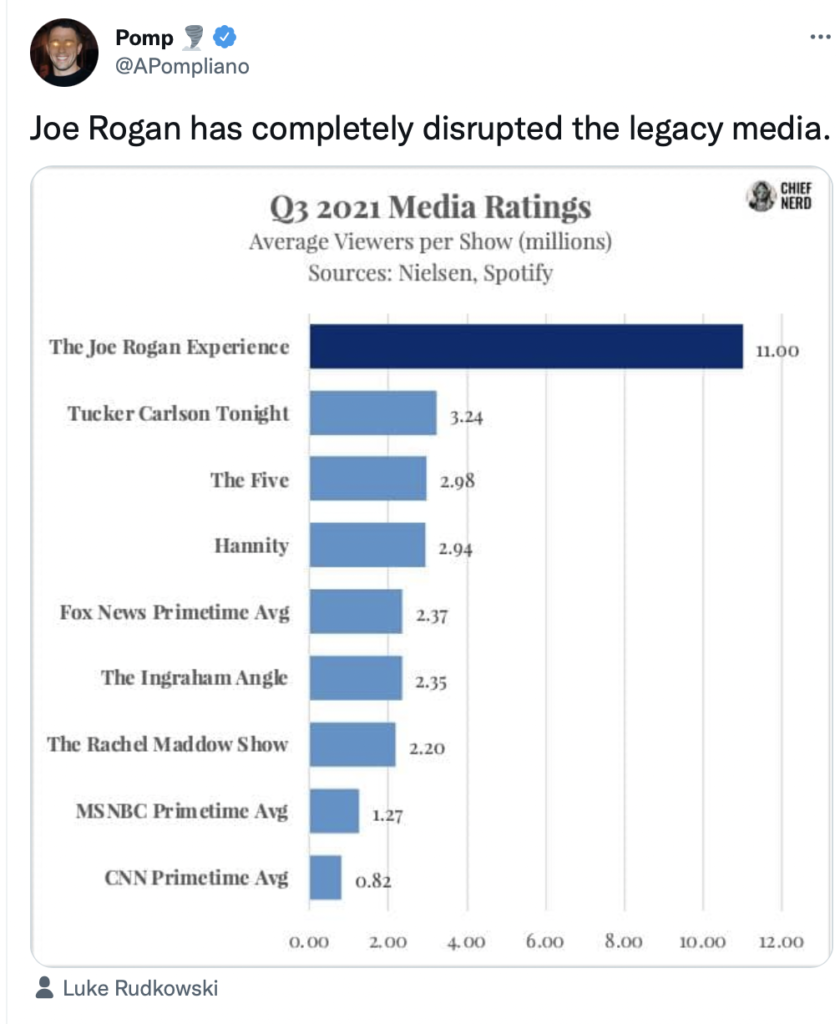
Or maybe CNN finds it much easier to attack Rogan for something trivial than to do the hard work of reporting real news, something CNN used to do.
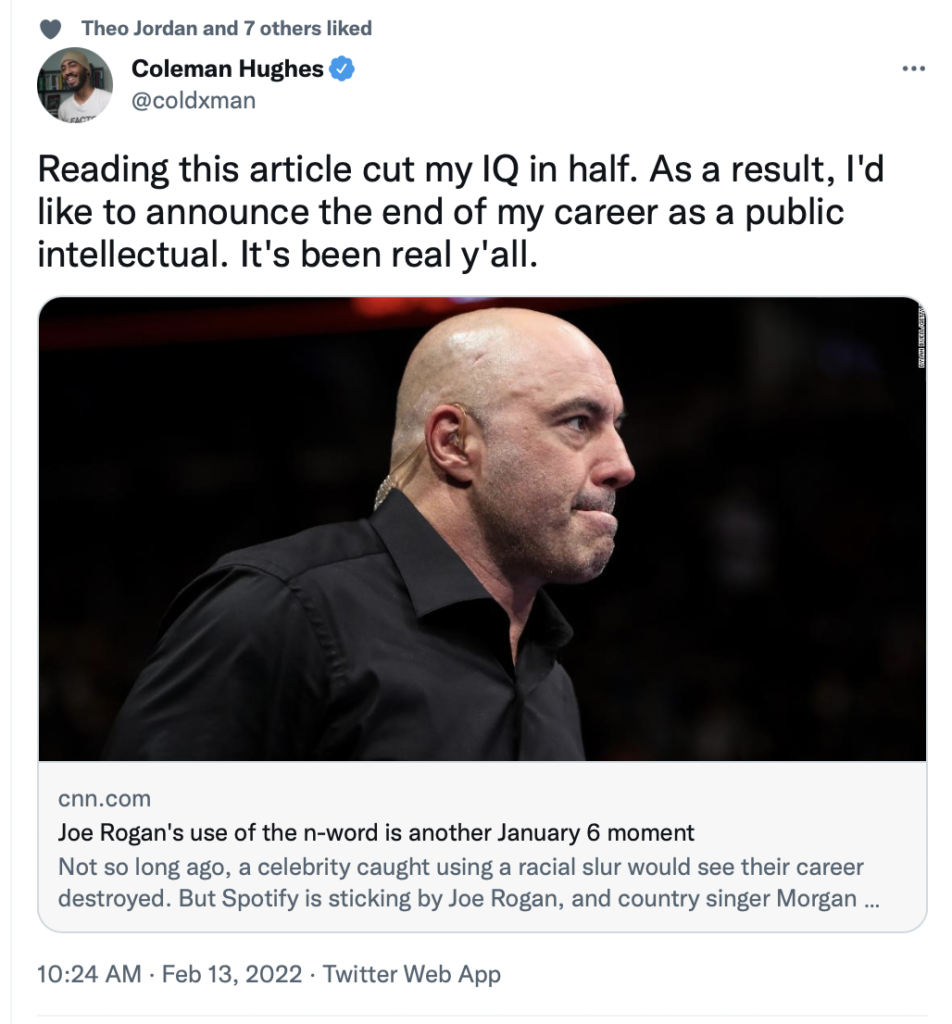
Here's Coleman's tweet. I agree entirely with this sentiment and I enjoyed the entire thread of comments. Use of the N-Word as a racial slur is (and should be) socially and morally abhorrent. Mentioning the N-Word where it is not being hurled as a slur should not a big deal, but it is a big deal to those who believe in religious taboos. CNN apparently believes that the N-Word is like the word "V------." OK, I'll actually risk death by writing it out: Valdmort.
For an in-depth, riveting and enjoyable discussion of the use of the N-Word through U.S. history, consider reading linguist John McWhorter's excellent book, Nine Nasty Words (2021). Here is the description from Penguin's website:
One of the preeminent linguists of our time examines the realms of language that are considered shocking and taboo in order to understand what imbues curse words with such power–and why we love them so much.
Profanity has always been a deliciously vibrant part of our lexicon, an integral part of being human. In fact, our ability to curse comes from a different part of the brain than other parts of speech–the urgency with which we say “f&*k!” is instead related to the instinct that tells us to flee from danger.
Language evolves with time, and so does what we consider profane or unspeakable. Nine Nasty Words is a rollicking examination of profanity, explored from every angle: historical, sociological, political, linguistic. In a particularly coarse moment, when the public discourse is shaped in part by once-shocking words, nothing could be timelier.
BTW, I highly recommend the podcast of Coleman Hughes. He seems entirely too young to be as wise as he is on so many topics. Check him out!



